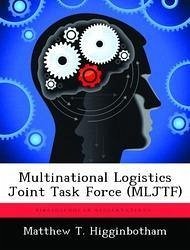Currently the United States is involved in providing logistics support to multinational stability operations around the world. Synchronizing support to US and coalition forces not only requires planners to integrate the different strategic, operational and tactical logistics doctrine of each participant, but to determine the optimal logistics organizations required to support multinational operations. The complexities of integrating US joint and multinational logistics support to stability operations in the absence of a fixed, US multinational logistics organization remains a significant challenge for logistics planners. This difference in stability operations logistics doctrine is due to many factors, but primarily to national constraints of logistics authority, which impact logistics planning and the CJTF commander's ability to achieve unity of effort across logistics in the Joint Area of Operations (JOA). Therefore, assuming there are no changes to multinational stability operations logistics doctrine in the near future, how does a US CJTF commander best integrate joint and multinational logistics operations for future US lead stability operations? In this monograph, by analyzing the UN, NATO and the US Army's evolving Modular Logistics Doctrine, the author integrates the key areas from each doctrine into a multinational logistics joint task force (MLJTF) organization. The MLJTF is a separate logistics joint task force whose commander reports to the CJTF commander, and is responsible for executing, synchronizing, and coordinating theater logistics during a given stability operation. By analyzing UN, NATO and future US modular logistics doctrine, the author concludes that, regardless of current US title 10 and coalition national authority constraints, commanders and logisticians must organize the optimal logistics organization that provides the CJTF commander a clear picture of logistics in his JOA. Properly resourced with joint and multinational resources, the M
Hinweis: Dieser Artikel kann nur an eine deutsche Lieferadresse ausgeliefert werden.
Hinweis: Dieser Artikel kann nur an eine deutsche Lieferadresse ausgeliefert werden.








